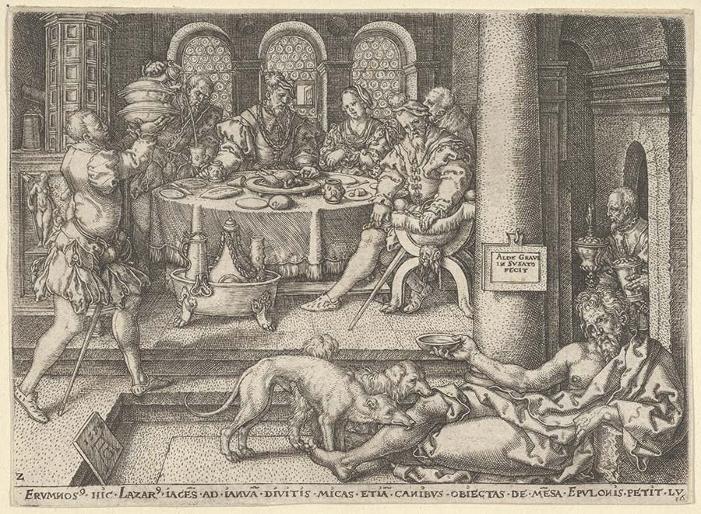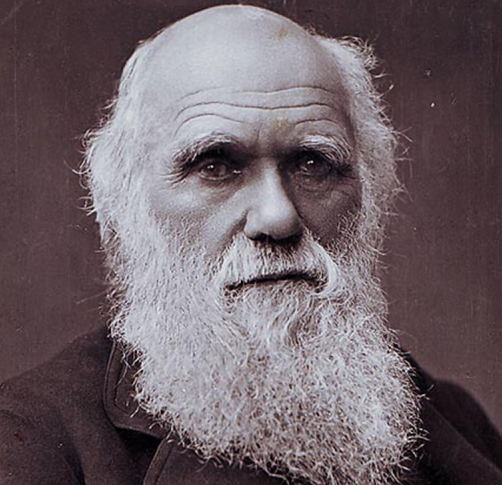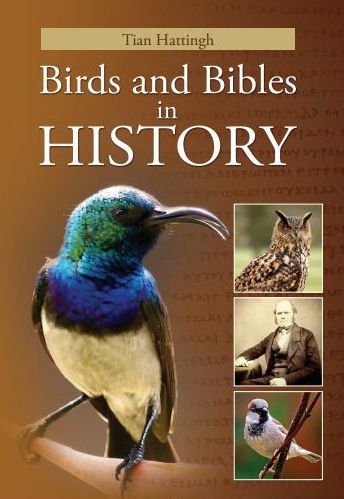I believe
On this page I keep a record of my views on a number of issues that I am often asked about. They are in no specific order and are by no means complete. These are my views and I am always open to alternative views. Because many issues can be debated forever, I have not started a blog. I just want to give information and state what I believe.
However, should you want to share your view, please feel free to contact me.
e-mail: christiaan.hattingh777@gmail.com
Does the Bible say that !! ??
Please have a look at 1 Cor. 4:6b. In it Paul states that he is guided by the following saying:
Do not go beyond what is written.
I always keep this principle in mind when dealing with the Bible. If it's not written in the original Hebrew Bible (the TANAKH) or in the original Greek Bible (which both were inspired by God), it's something that a human being has thought out and therefore should be examined critically.
For example:
The rich man and Lazarus.
In Luke 16:19-31 Jesus is telling a story about a certain rich man and a beggar which He calls Lazarus. Nowhere do I read that Jesus said,
Now I am going to tell you a true story that really happened.
It's just a story aimed at the Pharisees, living in the love of money and of the enjoyments which money purchased; and His disciples, who had left all to follow their Master, poor with the poverty of beggars.
The Hebrew alphabet
People often say that the letters of the Hebrew alphabet have some special or secret meanings. To me aleph is the first letter of the Hebrew alphabet, and in the Hebrew Bible it is also used to indicate the numeral "one" and that's it. Any other "meaning" is "man-made."

Charles Darwin
(1809–1882)
was a British naturalist who proposed the theory of biological evolution by natural selection. Darwin defined evolution as "descent with modification," the idea that species change over time, give rise to new species, and share a common ancestor.
Darwin's theory of evolution declared that species survived through a process called "natural selection," where those that successfully adapted or evolved to meet the changing requirements of their natural habitat thrived and reproduced, while those species that failed to evolve and reproduce died off

Darwin and his Theory of Evolution
Sometimes being a layman has its advantages.
I have no problem reconciling Darwin and my Bibles.
I cannot explain how the universe and its creatures were created. I believe my Bibles when they state that a “Creator” was involved, and that “He” created it from “nothing” in six “days.” I have to admit that there are an enormous amount of issues that I simply cannot get to grips with. I don’t even know exactly what my Bibles means by “nothing.” In addition, I have no idea what my Bibles mean when they talk about a “day.”
I believe science has proved that our universe and species have developed over millennia. I do believe that one, and only one, of those species, Homo sapiens, meaning “wise man” or “knowing man” developed into something unlike any other species.
Humans have a highly developed brain, capable of abstract reasoning, language, introspection, and problem solving. This mental capability, combined with an erect body carriage that frees the hands for manipulating objects, has allowed humans to make far greater use of tools than any other living species on Earth. Other higher-level thought processes of humans, such as self-awareness, rationality, and sapience, are considered to be defining features of what constitutes a ‘person’.”
Wikipedia contributors. "Human." Wikipedia, The Free Encyclopedia. Wikipedia, The Free Encyclopedia, 5 Aug. 2011.
I do, however, believe we should add one more distinctive feature when defining a “person.” This is coupled to my view on the concept of “eternity.” Staring up into the night-sky, and taking note of what science has to date established as facts, I cannot but believe that space is eternal. There is no end. One can travel for ever but will not be able to get to a fence with a sign attached to it saying: “The End.” Even if there were such a point, we could question what lies beyond that point. So, if we can travel for ever, it means “for ever” in terms of time as well. To me that means “eternity.” Then, in my mind, the feature that distinguishes Homo sapiens definitively from other species is that we have a “hope” of experiencing eternity in some way, state, or form.
How did we receive this “hope”?
I believe that at some point during the millennia of evolution, humans received an addition trait over and above that of a physical body. This was not the case in any other species, and contributes to our uniqueness. We call it a “soul”, but what exactly that means no one knows. I do however believe that this mysterious entity gives us the capability to exist “for ever” in some way, state, or form. In this regard, the discovery of the Neanderthal man (an extinct member of the Homo genus) is an interesting development in our knowledge of the past, and could possible in future assist in our understanding of whom exactly we are.
How, what, and where this “eternal life” will be, I believe no one knows. I can appreciate the quest of those individuals who spend enormous amounts of time, money, and effort to find some answers, but I believe it is a futile exercise. We can speculate, guess, fantasize, and dream, as much as we like, but unfortunately we will not be any the wiser from within our present reality. The simple fact is: we cannot go there in terms of space, time, or any other dimension, and then return to our situation and report back.
Why do we have this “hope”?
According to my Bibles we were made so special so that we would be capable of spending eternity in the presence of the Originator, applauding him/her for giving us this unique opportunity called “life.”
Why do only some of us believe this?
I simply don’t know.
As I said before: “Being a layman has its advantages.”
(2012) The London Press ISBN: 978-1-907313-70-7
The above article is an extract from «Birds and Bibles in History»
Chapter 3.2 «Charles Darwin»
An electronic copy of this book can be downloaded to any device and free of charge.

The is no such thing as "The Bible."
I believe that scholars and laymen alike are using this term indiscriminately without explaining or clarifying what they actually mean. For example:
Christian and Jewish believers would obviously not agree on what should be considered to be the “Word of God.”
But less obvious is the fact that my initial statement is relevant, even when only Christian believers are involved. This phenomenal statement is based on two sets of realities:
Firstly:
The variables that originated during the development of the Scriptures over the past 2500 years.
The original documents have been gone for even thousands of years. Mistakes were made all along the process of copying and translating.
Each and every individual involved in this process had or has his or her own personal mindset, formed according to his or her background, education, socio-economic situation, and a myriad of other factors. Some even had other agendas than producing the perfect product.
Secondly:
The differences that are present today in what one particular individual would call “My Bible”, or a group would call “Our Bible.”
For example:
Christians and Jews differ.
Hundreds (if not thousands) of translations differ.
Interpretations of exactly the same words differ.
The dictionaries that translators are using have conflicting views on what the original authors wanted to convey to his readers. Ad infinitum.
So, in a nutshell, what do I believe?
I believe that we are merely gazing into an extremely dim image in a mirror (1 Cor. 13:12), trying our best to see a clearer image of what we believe to be “The Word of God” or “The Bible.”
God in turn, in his infinite wisdom, is constantly revealing himself to us in greater detail. This is a process which I believe will continue until He reveals himself to us fully in the next era.
In the meantime, I am thankful for those texts that I have to my disposal, and will keep on studying an as wide as possible variety, and then submit myself to Him to convince me of the truth.
In addition, I believe that God is revealing himself to mankind, not only by means of Scripture, but also by means of Nature.
To me, the latter speaks simply and clearly, without misunderstanding and/or controversy. Even a child can look up into the night sky, or hold a sparrow and know we are dealing here with something way out of the grasp of our human minds.
Therefore, to me “God” is just a word we humans use to name the incomprehensible being that created everything from nothing. A being that allowed a myriad of species to develop, and then decided that one species should be more special than any other, by giving it what we call a “soul”, and so become the crown of his/her creation.
For the past sixty years I have had the privilege of getting better acquainted with him/her. I have come to realize that the universe has no end, and therefore that s/he has no end: Neither in time, nor in place. I have seen that what s/he created is absolutely perfect and good, so I have come to believe that s/he is perfect and good. And then I remember: the birds are displaying his/her glory par excellence!
As a result, I now call him/her not only “God”, but also “Creator”, “Omnipotent One”, “All-wise One”, “Father”, “Mother”, “Perfect One”, and “Good One.”
But superseding all of these titles is the one I believe says it all:
“Love”.
I see “Love” everywhere and every day.
I see “Love” on the subway for example.
I see it in the eyes of a grandpa, across the aisle from me, looking down at his grandson on his knee. I see it a few seats away in the comforting arm of the elderly farmer around the shoulders of his wife. Both probably on a subway for the first time in their seventy or more years, and obviously amazed by the technological wonders surrounding them. I see it in the smile of the young girl in the corner next to the door, looking up at her Romeo, who has his arms tight around her waist, both of them completely oblivious to the stares of some fellow passengers. I see “Love” whenever and wherever someone cares, and it confirms time and again: where there is “Love”, there is no selfishness, no greed, no hate, no bitterness, no grudges, and no need for revenge.
(2012) The London Press ISBN: 978-1-907313-70-7
The above article is an extract from «Birds and Bibles in History»
PART 2 «BIBLE TRADITIONS»
This part of the book presents the reader with a very short overview of:
The origins of our Bibles, and
How our Bibles developed over the past 2500 years.
An electronic copy of this book can be downloaded to any device and free of charge.

Abortion
General principles
Live begins at conception
I believe it is irrational to think that on the last day of week "x" of a pregnancy we are still dealing with an inanimate "fetus", and the very next day (the start of week "X+1", we then consider the same fetus to be an animate human being.
Humans are different from animals in several ways.